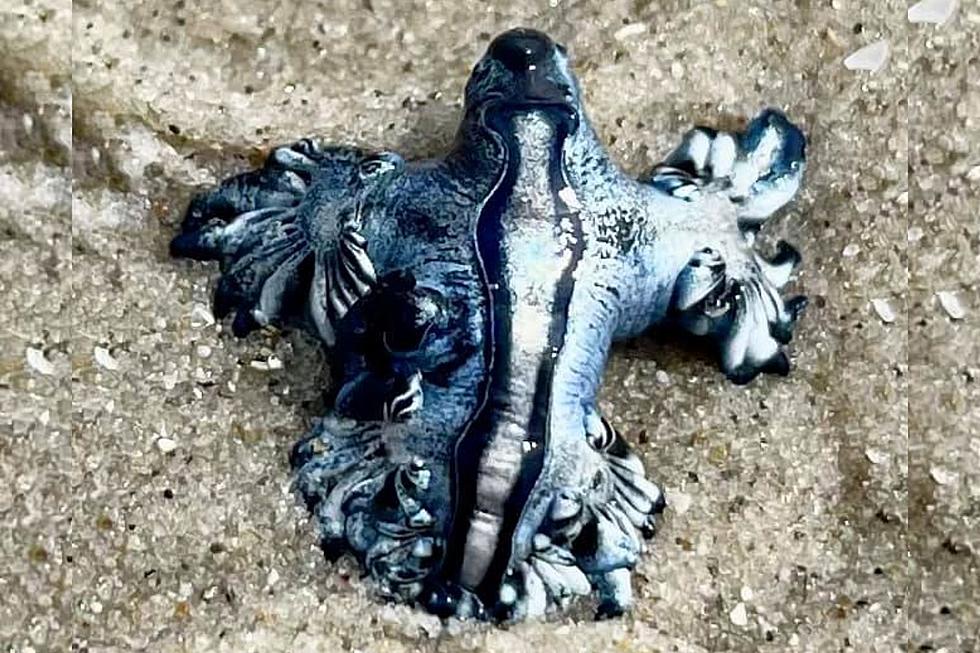
WATCH OUT! Blue Dragon Stinging Sea Creatures Hit Texas Beaches
Stay away! The Blue Dragon is now invading some Texas beaches. What is a Blue Dragon?! It's an extremely rare sea slug who got it's nickname for it's dragon-like wings and unique blue color. And, while this dragon is not like one you'd see on an episode of "Game of Thrones," it still can harm you with a powerful sting.
KSAT.COM reports the creatures have turned up on Port Aransas beaches. And, the facebook page of the Mission-Aransas reserve (an non-profit organization administered by the University of Texas) posted “We’ve got a number of cool finds washing up this week. We recorded 4 blue dragons (species of sea slug) in a 100 meter stretch of beach just north of Bob Hall Pier. Do not touch these animals, they feed on Man-o-Wars and sting just as bad.”
Photo courtesy of Courtesy Mission-Aransas Reserve Facebook
Ok- you don't have to tell me twice - I'm staying away. I remember the traumatic experience of being stung by a jellyfish as a kid. I'm sure it wasn't that bad, but it stayed with me. And despite some myths (peeing on the wound), I give you these tips from the MAYO CLINIC to treat:
First-aid care
Most jellyfish stings can be treated as follows:
- Carefully pluck visible tentacles with a fine tweezers.
- Soak the skin in hot water. Use water that's 110 to 113 F (43 to 45 C). If a thermometer isn't available, test the water on an uninjured person's hand or elbow — it should feel hot, not scalding. Keep the affected skin immersed or in a hot shower for 20 to 45 minutes.
Steps to avoid
These actions are unhelpful or unproved:
- Scraping out stingers
- Rinsing with seawater
- Rinsing with human urine
- Rinsing with fresh water
- Applying meat tenderizer
- Applying alcohol, ethanol or ammonia
- Rubbing with a towel
- Applying pressure bandages
Ok, so now you know...be safe!
More From KIXS FM 108









